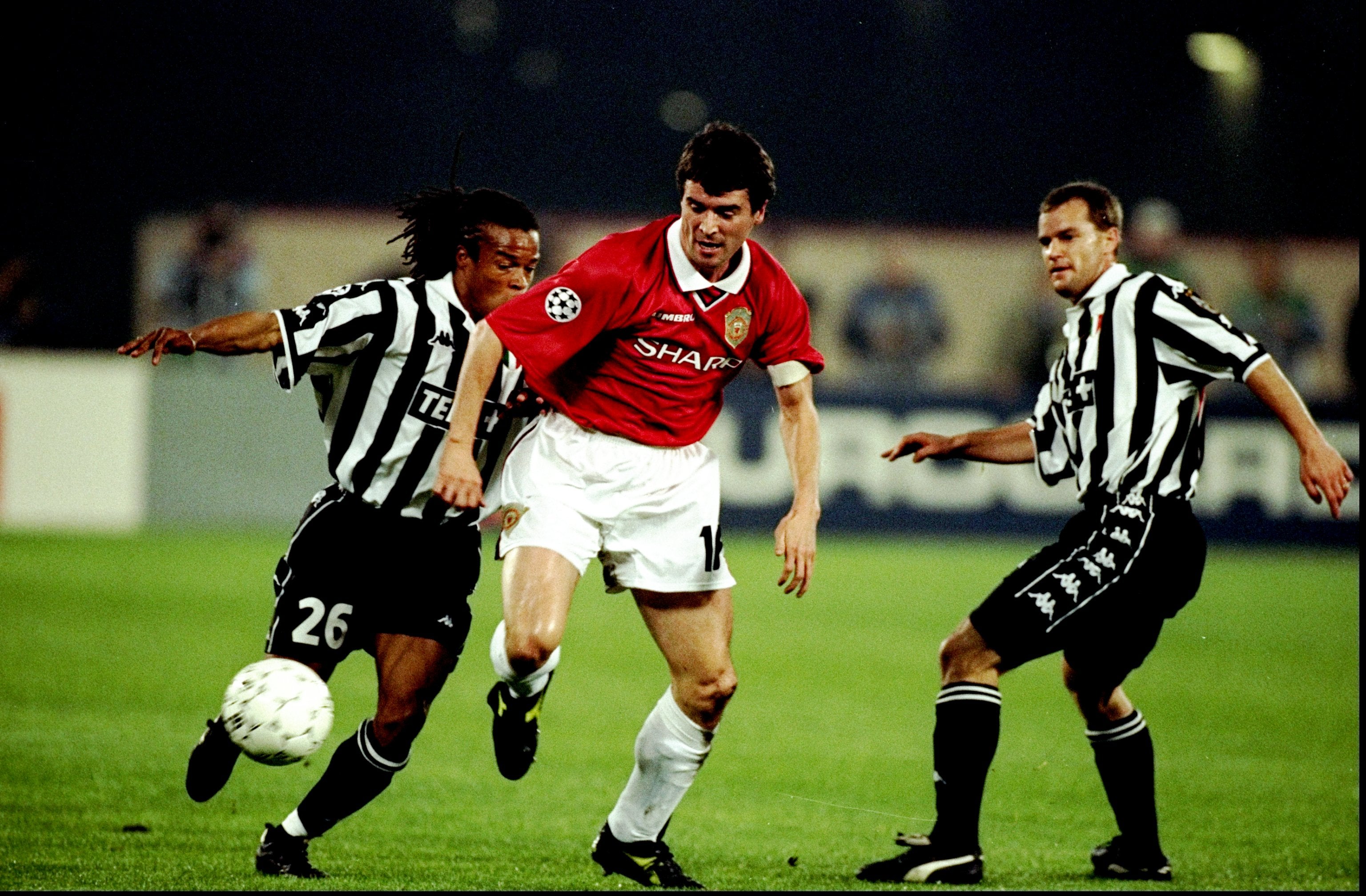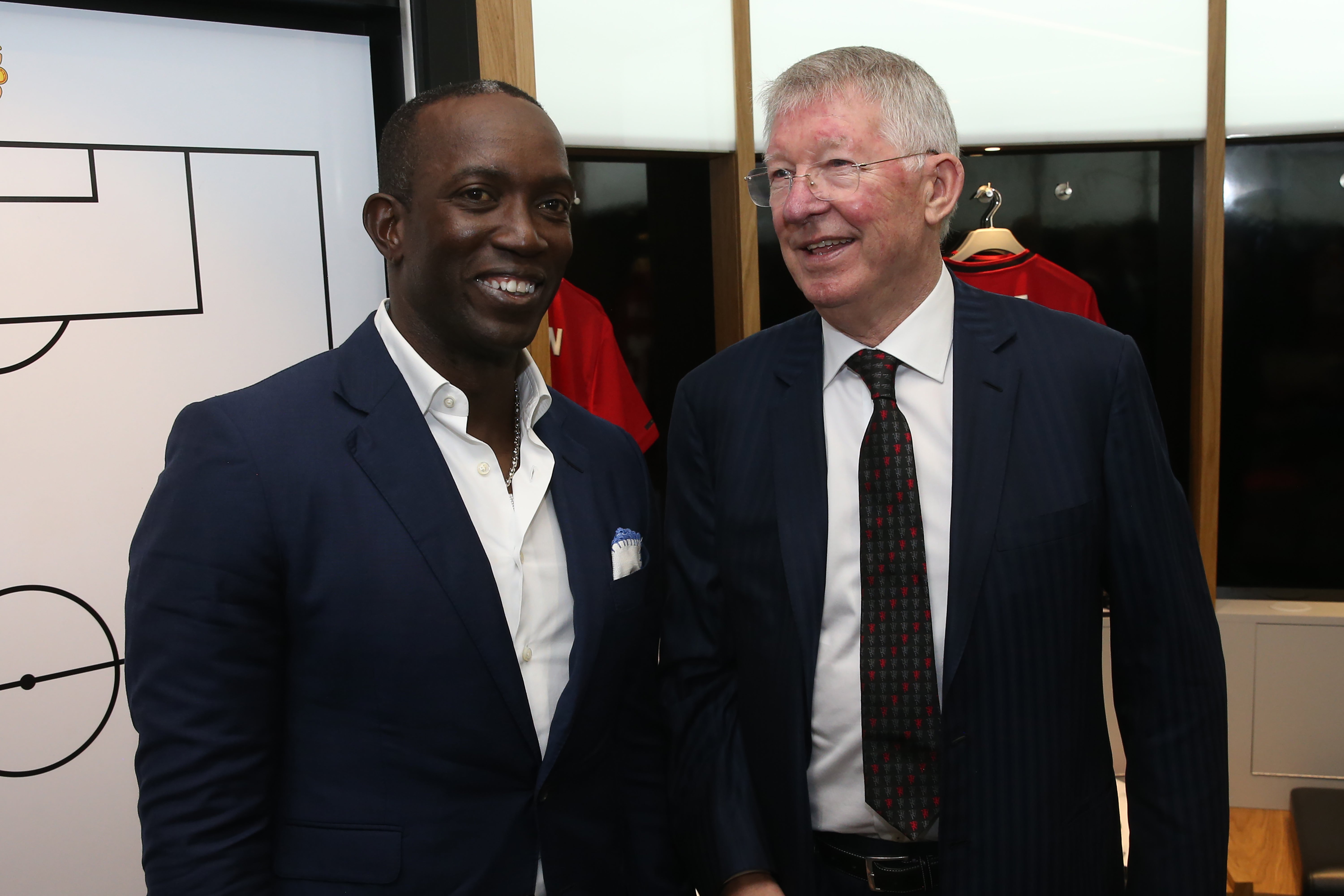The Independent's journalism is supported by our readers. When you purchase through links on our site, we may earn commission.
Manchester United documentary ‘99 is an exquisite hit of nostalgia to distract from club’s present woes
There are few new revelations in Amazon’s recollection of United’s famous treble but the memories are still spine-tingling.
There was a time when the period dramas television executives rushed to commission involved the writings of Jane Austen, not the musings of Phil Neville. Though that time was the 1990s, a decade that has led to a growth industry in Manchester United nostalgia. Which, as the last quarter of a century has taken them from “football, bloody hell” to “football, bloody mess”, may be unsurprising. The past is infinitely preferable to the present for them.
After Netflix’s David Beckham documentary comes Amazon’s ’99; made by the same production company, covering some of the same ground, with many of the same faces; most of the stories are familiar, the footage well-worn but still spine-tingling. United’s greatest season is ripe for revisiting, even if only to distract them from one of their worst campaigns anyone under 40 can remember. It has created various legacies. There was a story last week that the criticisms of the military-industrial complex of high-profile Old Trafford old boys may be deterring prospective candidates from wanting to manage the club.
And it feels we are never far from former Manchester United players tipping Manchester United to win, seeing Manchester United lose and bemoaning how Manchester United are not what Manchester United used to be and saying what Manchester United should be. All of which may be a product of 1999. Because, as much of the third episode – it is no coincidence there are three, given it documents a historic treble – concerns a Champions League final where Sir Alex Ferguson got his team selection and tactics wrong, his side largely played poorly and could have been hammered but won because they were Manchester United.
Because it would have been Sir Matt Busby’s 90th birthday, because it was Ferguson’s overarching ambition, because it was their destiny, their character, their nature. None of which actually provided a formula after Ferguson retired, leaving his stalwarts so bemused when their successors struggle. Compared to many a more recent team, United didn’t triumph because of tactics or a footballing philosophy. They won because it was what they did.

Now a group of middle-aged men – and the octogenarian Ferguson – turn back time, monotone Mancunian tones and sing-song Scandinavian voices reliving the remarkable. “What was the treble?” asks Andy Cole. “There was no such thing.” Which, as clubs from other countries had done their own trebles, may not be factually accurate but which garnishes the legend anyway.
Not that it needs of it. Much of it remains astonishing: Roy Keane’s selfless tour de force against Juventus, Peter Schmeichel’s penalty save from Dennis Bergkamp, the greatest goal of Ryan Giggs’ life, Teddy Sheringham and Ole Gunnar Solskjaer in the Nou Camp. There is Beckham’s redemption story, Paul Scholes still haunted that he, like Keane, missed the Champions League final. It is as close in time to United’s 1974 relegation as it is to now. If it makes it ripe for reminiscing, perhaps the relation to the modern game is increasingly distant. It was less sanitised then.
Perhaps, in the late 2040s, a documentary on Manchester City’s more recent treble will reveal that Bernardo Silva hated Ilkay Gundogan who punched Nathan Ake who refused to talk to Ruben Dias who told Manuel Akanji to f**k off to Switzerland in a sports car. But probably not.
Yet – and while Solskjaer, whose happy place remains Old Trafford in 1999, talks of them all being mates – United’s team spirit came in spite or because of their personality clashes. There was Schmeichel and Keane, who fought in a dressing room; “two animals, they didn’t get on,” says Gary Neville. Cole remembers trying to punch Sheringham. The striker recalls a row with Keane. “He said: ‘Why don’t you f**k off back to London with your Ferrari?’” An assist and a goal in a Champions League final later, perhaps even Keane was glad Sheringham did not heed his advice.

The cast list of interviewees is impressive and extensive. Beckham brings smiling charisma, Schmeichel candid insight, Dwight Yorke joie de vivre, Sheringham a ready acceptance that some people didn’t like him, Henning Berg about three sentences to prove the filmmakers interviewed Henning Berg. Only one man is missing: Keane, a great contrarian but presumably because of his marked reluctance to mythologise. Ferguson, often one to harbour a grudge, ignores a feud that dates back to 2005 to pay generous tribute to his captain.
The Irishman intimidated opponents. Most of all, however, he intimidated Jesper Blomqvist, a gentle soul who feels unsuited to an unforgiving environment. Nicky Butt remembers Ferguson’s reaction to the 1998 defeat to Monaco. “It’s your fault,” his manager said. “I am out of the European Cup because of you.”
Perhaps it was a more brutal time, perhaps just a very different one. The contrasts are drawn in a group who could cope. Cole regrets a threesome. Phil Neville regrets a foul on Ray Parlour. If Beckham wishes he could return to the moment United won the Champions League, Yorke wishes he could party like it was Christmas 1998; Gary Neville organised the transport and Yorke oversaw the debauchery for an epic night which apparently served as the inspiration for an unbeaten run that began in December and spanned the rest of the season.
Like comfort viewing, it’s entertaining but unsurprising, shorn of the unpredictability United’s season showed then, but the antidote to their current failings. There are few actual revelations, though Gary Neville is taken aback to discover that Ferguson handed in, and then revoked, his resignation at the start of the season. Chairman Martin Edwards seems to argue he motivated the motivator by restoring Ferguson’s focus in a way that riled that Scot to threaten to quit.

Another galvanising factor was Arsenal’s 1998 double. “The previous season, everyone had swallowed the bible of Arsenal,” squeals Phil Neville. “Vitamins and pasta, it used to piss me off.” Full-backs from Bury had vitamins and pasta, too, but they didn’t like to talk about it and no one celebrated them for it.
But then no one thought United’s treble was down to diet or sports science. It was because they were Manchester United. And 25 years later, those seeking respite from the team of 2024, a happy ending or a genuinely great sporting story can enjoy the clips of historic brilliance while Gary Neville is sat next to a bath being endlessly eloquent about the glory days and the United he used to know.
::99 is available exclusively on Prime Video on 17 May, when all three parts will drop globally.
If you're not an Amazon Prime Video subscriber start a free 30-day trial here. We may earn commission from some of the links in this article, but we never allow this to influence our content. This revenue helps to fund journalism across The Independent.
If you’re travelling abroad and want to stream ‘99’ then you might need a VPN to unblock your streaming app. Our VPN roundup is here to help: get the best VPN deals on the market.
Join our commenting forum
Join thought-provoking conversations, follow other Independent readers and see their replies
Comments
Bookmark popover
Removed from bookmarks